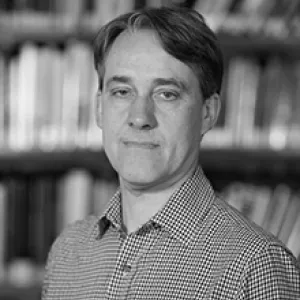After forty years at the coalface of the energy industry and 16 years leading the Energy Research programme and teaching students at the Environmental Change Institute in Oxford, Professor Nick Eyre is stepping aside. For an accidental academic who ‘scraped into a place at Oxford’ as an undergrad, he’s carved out quite a career and during that time witnessed some impressive advances in energy sustainability.
Nick explains why he has great hopes for the future and the world his grandchildren will grow up in.
A series of interesting jobs
“Coming to this University changed my life. I came from a regular state school in the north of England and it was a different world.”
Prof Nick Eyre’s first experience of Oxford was as an undergrad when he studied Physics and then went on to do a doctorate in Nuclear Physics at the department on Keble Road.
He was encouraged by his parents and his school to apply and decided to study Physics because he was interested in Science. "I didn’t really think about what my future career would be. I’ve never had a career plan. I’ve just been lucky to do a series of interesting jobs.”
On graduating with a First Class degree Nick was told he had ‘only just scraped in to Oxford’ and his heart has never really left the City since. He met his wife Melissa in 1980 at the Balliol/St Anne’s Graduate Centre, when Balliol was all male and St Anne’s all female. They married two years later.

Eventful career
After completing his doctorate, Nick went to work at the UK Atomic Energy Authority at Harwell. He was there for 12 years, initially analysing the corrosion of steel used in nuclear reactors but for most of the time in the Energy Technical Support Unit (ETSU), which the Government set up after the first oil crisis to look at the emerging energy options of energy efficiency and renewable energy.
I remember being asked, why did I want to go and work there. I had always been an environmentalist. I helped set up a Friends of the Earth group at University. My parents were strong environmentalists so I was always brought up to believe that was important. It was part of my world.”
He spent nine years there, helping run Government programmes to support energy efficiency in industry and then working on a team supporting the Government’s Chief Scientist in the Department of Energy.
While there he was part of a team who wrote a presentation for Margaret Thatcher’s Cabinet on how to reduce carbon emissions, which was a new idea then.
“That was exciting and all terribly new. We were working out how much carbon emissions were in coal and gas.”
But this was just Nick’s first foray with British politics. Nick’s career has included a spell on secondment in the Cabinet Office working on the 2002 Review of Energy Policy. This led to one of Nick’s career highlights as part of a team giving a presentation to the Prime Minister, Tony Blair, in the Cabinet Room at 10 Downing Street.
Other roles since then have included Head of Policy and Director of Strategy at the Energy Saving Trust, Co-Director of the UK Energy Research Centre, Director at the Centre for Research into Energy Demand Solutions (CREDs) and Co-Director of the Zero-carbon Energy Research Oxford (ZERO) Institute.
But rather than individual moments, Nick defines his career by the people he’s worked with and the students he’s inspired and been inspired by.
An accidental academic
I got into academia slightly by accident. I joined the ECI in 2007. I applied for the post of Energy Research Programme Lead and the appointing panel obviously thought someone outside of academia could do it.
“As an academic you can guess that it is the people who are both very intellectual and very determined who will go far. But you can also be surprised by some students.”
Environmental Change
“One big change I’ve witnessed over the years is the change in attitude particularly towards climate change. One of the outcomes of working in this industry is realising change will be slower than you hoped because you’ve got to change so many things; policies, technologies, infrastructure, behaviours and attitudes.
“In other ways though I’ve been surprised with how quickly some things have moved on, such as renewable energy. The costs of wind and solar have come down and that’s where the investment is going.
It’s a chain of events, you get a change of investment, before a change in deployment of clean technologies, then a change as the greenhouse gas emissions come down and hopefully finally as concentrations decline. If you look at the end of the chain you might feel depressed, but if you look at the beginning you might feel encouraged.”
ECI highlight
“The overarching highlight is being part of a team of really great people all working on the same issues. Working with the next generation who have great ideas and are doing great work. It’s unrealistic to think my work will solve the problem alone, you’ve got to be part of a collective effort. And working with other people who have the same end goal is what inspires me.
Years ago, we used to comment that the number of people in the UK working on alternative energy solutions would all fit in one small room. Now there are thousands more."
Leaving a legacy
“I’m very proud of the work that we done at CREDs in the latter years. We’ve carried out a lot of research and produced a lot of reports that will inform researchers for years to come. I believe though, rather than scientists being asked if their work is novel, they should be asked is it important.
"Oxford is leading the World and the ECI is playing a big role in that. It is one of the leading institutes globally. I am pleased to be part of the team that set up the Zero Institute and working across the University, in Engineering, Physics, the Smith School of Enterprise and the Environment, Said Business School among others.”
Their work may not be in Nick’s immediate area but he is seeing more and more the inter-disciplinary work between teams.
I am constantly impressed by what I see in the other ECI teams. The sum of those parts is what you’ve got to try and build on. And ECI has pioneered that approach. You can’t sit in your own department and discuss and claim we have all the answers, it’s again about being part of a team with different insights.
“I’ve really enjoyed working with all the people I have and their commitment to the cause of reducing energy use and cleaning it up.”
Changes to the climate
“There is the sense that attitudes to climate is different to what it used to be. It’s not just about clever scientists building a model. People are living through climate change and are now more likely to believe it. That was one of the challenges early on. In this country we don’t get as affected as much of the Global South. But with more and more trusted voices, like David Attenborough, people start taking more notice.
Changes to energy
“With energy prices going up that has attracted a huge amount of attention on alternative energy sources. We have had journalists contacting us rather than them.”
Nick’s media work has included interviews on Newsnight, World at One and BBC Breakfast.
It’s not a natural thing for me to do. I don’t particularly enjoy talking to the media. I’d rather be sat in front of a spreadsheet.”
The benefit of hindsight
“My advice to my younger self is to keep trying. Things won’t happen as quickly as you hope but they won’t happen at all if you don’t try.
“I know things will take time and I understand there will be a combination of approaches. You need the people who are prepared to sit in trees and in front of bulldozers as well as the people who are prepared to talk to the Prime Minister at Downing Street.
“So we need a mix of approaches to get change, but I draw the line at anything that is not peaceful or within the realms of democracy – you’ve got to ask yourself why you would expect support.
Hopes for his grandchildren
“My hope for the next generation is to be optimistic. Some things are getting better and are moving forward. Globally, hundreds of thousands of people are involved and the Government is far more on board that it used to be. I am optimistic. The next generation knows more about these issues. And after 16 years of seeing Masters Students coming through the ECI I am excited about what the world will look like in 2050.
“The chances are I won’t be around in 2050, (When I will be 94), but when you think about it in real lives, plenty of people will be around then.
“I see it in an inter-generational way. This is not just in an academic way but a personal way. I have two children and two grandchildren, and those grandchildren will probably be around in 2100.”
Honorary Research Associate
On leaving the ECI Nick will become an Emeritus Professor and for someone who scraped in to Oxford, it looks like we’ll have to shovel him out.
“I will still be very much involved in the ECI as I will see my three Doctoral students through to completion and I am still teaching on the ECM. Outside of the ECI I am still on a number of advisory boards.
“I’ve not consciously taken on new things and I am happy to hand over the reins of organising and managing to other people. There is no risk of me sitting at home doing nothing though.
What I’m going to miss most is the intellectual stimulation and the people generally. It’s a team of really nice people as well as good researchers. Together we have built a community and that’s what is needed in order for Environmental Change to happen.”

